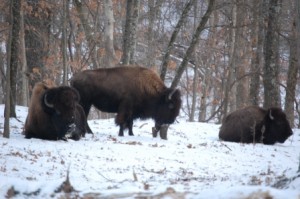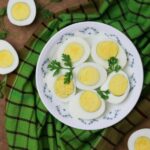Growing up in St. Louis all my life, I am amazed I had never visited, or really even heard much about, Lone Elk Park. Not only is it a cool place to check out animals that you otherwise wouldn’t see in St. Louis (elk, bison, and lots of different bird species); it also has an interesting history behind it.
The park was once part of the Tyson Valley Powder Plant, a 2,400-acre tract of land used for ammunition testing and storage during World War II. After the war ended, the land was turned into a County Park and herds of bison and elk were established in 1948. However, the land was reclaimed by the Federal Government during the Korean War and all of the wildlife herds were destroyed in 1958. I hated to learn about this part, but there were several reasons behind it: some of the animals were destroying property, and because they were testing ammunition, a lot of the vegetation had been killed so the animals couldn’t forage. There wasn’t enough money during wartime to feed them, so they harvested them and donated the meat to local food banks.
But years later, one lone bull elk was found to have survived.
Through the years, the County has taken over the land again, acquired more land, and more elk were brought in from Yellowstone National Park in 1969. Bison have acquired from the St. Louis Zoo in 1973. In 1986, the World Bird Sanctuary set up on 305 acres of land adjacent to the park. Check out this site if you want a more detailed history of Lone Elk Park.

You can take a short drive through the Park and view deer, bison, turkeys, and elk without ever getting out of your car. I did this over Christmas and saw tons of animals during the 20 minutes or so drive through the park (see the photos I took below). But, there are a lot more activities available if you have more time to spend there. You can hike along two different trails, picnic in one of the many shelters, or visit the World Bird Sanctuary. The Sanctuary is one of the largest facilities in North America for the conservation of birds. There is a hiking trail and more picnic areas within the Sanctuary, as well as educational programs and exhibits of raptors, parrots, reptiles, and more.
And entrance into both places is FREE, so it’s definitely worth it to check them out. Since I went in December, the lack of leaves on the trees and snow cover made it easy to spot the animals, but I think it would be absolutely beautiful in the fall, and am planning on visiting again then. More info and directions can be found on their websites: Lone Elk Park and World Bird Sanctuary.





